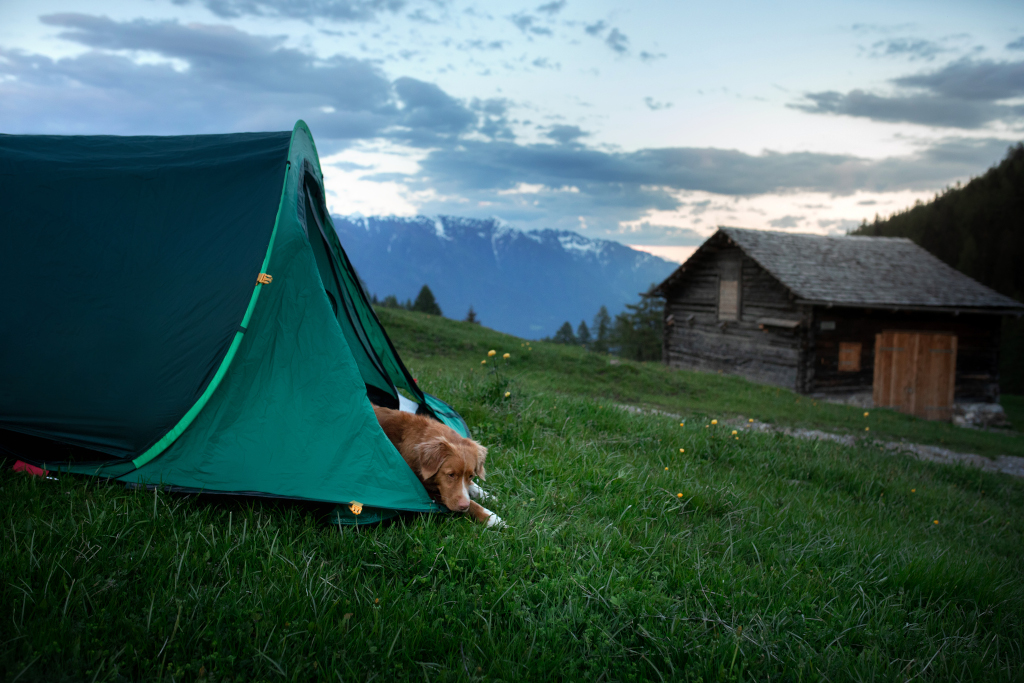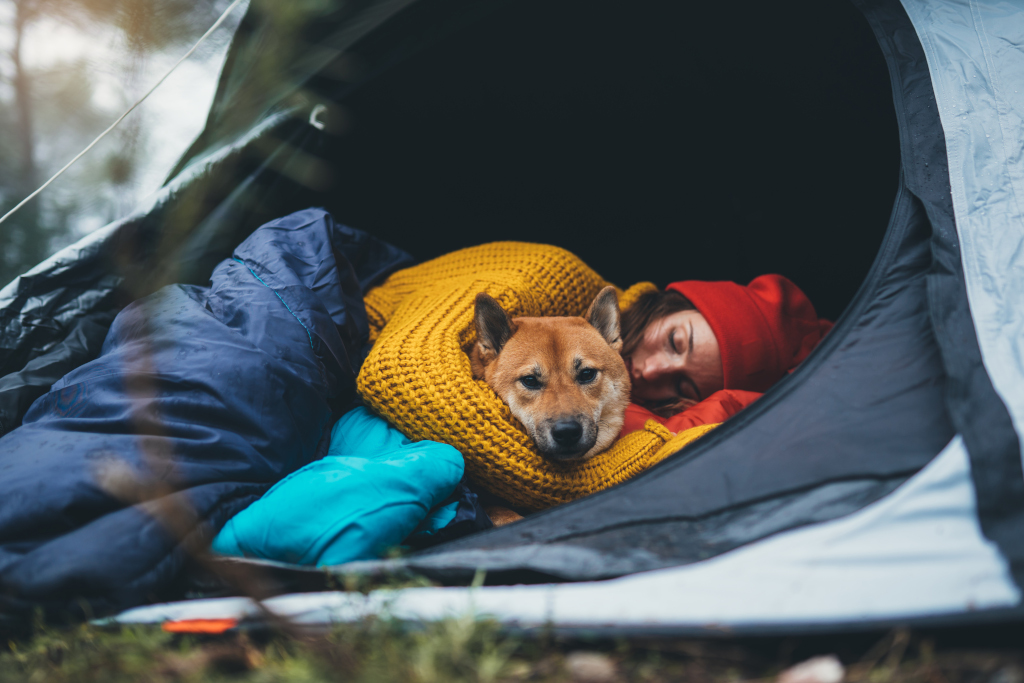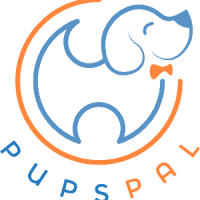There are many reasons to take your dog camping. It’s an excellent opportunity for both you and your pup to connect with nature, unwind from the stress of daily life, and get some much-needed exercise.
However, the idea of being in a new environment can be terrifying for some dogs, causing them to whine, bark, and pant. For other pups, the excitement of exploring new scenery, sounds, and smells outweigh any fears they may have, leading them to run around like crazy, getting into everything possible, and bark uncontrollably.
As you can imagine, that can be very frustrating for the dog owner and other campers who are trying to enjoy their camping trip.
Whatever the case may be, there are ways to help them relax. A little effort on your part can make the difference between a miserable experience and an enjoyable one for you both.
Below are some helpful tips and tricks for keeping anxious or reactive dogs calm while camping, stopping them from being a nuisance to you and your fellow campers!
1. Preparation is the Key!

If your fido has never been camping before, that’s probably the reason they are exhibiting the behavior mentioned above. The first step then is to prepare your pup for the experience.
To do this, you can begin by getting them used to sleeping inside a tent. And a backyard campout is a good start, so, if you can, camp in your backyard to acclimate them to the outside sounds and get them comfortable with basic things like being around a campfire.
Once they seem ready for the outdoors, it’s time to take them on an actual trip. If possible, take some short trips that are just long enough for them to adapt first before camping overnight or committing to an entire weekend or extended trip.
And remember, not to rush them, as every dog is different.
Dogs who are more relaxed and less sensitive will be able to handle the experience much better than, say, an anxious or high-strung pup.
You may have heard a lot about how socializing dogs when they’re puppies can prevent them from becoming fearful or anxious.
Even if your dog is already anxious, fearful, or has aggression, socializing them can work wonders, although it isn’t easy.
You have to plan really carefully and be sure to monitor their interactions closely and keep them leashed. You, of course, also need to take things slow and not force your canine to be around something they aren’t ready for just yet. If you aren’t confident in this, perhaps have a professional help you with it.
And make sure your pup is conditioned until the point where they are comfortable with strangers and other dogs in any setting before attempting to take them on a camping trip.
The reason is that you can’t predict when people will start walking by, playing music loud enough for everyone to hear, or just being loud and rowdy around the campfire at night, which your pup needs to know how to handle.
3. Pick a Less Popular Camping Spot
If you do the research, you’ll find that there are hundreds of campsites available.
While it’s tempting to pick one that seems perfect or is close by, consider your fellow campers who may not be as eager to put up with your dog’s incessant barking and other unwanted behavior.
And more importantly, consider your dog, who may become anxious or agitated if surrounded by too many people or too much noise.
Of course, this doesn’t mean you can’t camp with other people. It just means that you should pick a campsite where there aren’t many others around. So, take the time to research and choose a secluded campground, even if it’s going to take a little longer or require more travel on your part.
A nice, quiet campground with few other people and next to a pond or lake is ideal. And besides, the more remote it is, the fewer complaints will come in!
4. Camp When it's Less Busy
Also, be aware of the busiest times at a campground and plan your trip accordingly. In fact, the fewer people there are, the better it is for your dog. This way, they can avoid the crowds and noises that may potentially be overwhelming for them.
So if possible, avoid camping on weekends since it usually will be busier than weekdays. Or consider going during the off-season or at least opt for a less busy time of year. For instance, staying away from camping in the summer is very smart, though a winter campout with dogs will be on another level of difficulty!
5. Keep Your Dog Occupied
One of the best ways to keep a dog calm when camping is to ensure they have plenty of things to do.
Having toys on hand is a great way to do this. That can provide your pup with plenty of mental stimulation to help keep them busy and happy, ultimately reducing boredom which often leads to anxiousness.
Apart from giving your canine toys, there are also games you can play with them. For instance, a game of fetch or Frisbee with a long-lasting treat like a Kong filled with frozen peanut butter makes an excellent camping activity. Also great are simple brain games such as hide and seek or “find the toy.”
6. Use Dog-Appeasing Pheromone Collar

There are unique collars that can help to relieve stress and calm dogs down too. These products are dog-appeasing pheromone (DAP) collars. They do what the name suggests, which emits a synthetic version of dog-appeasing pheromones proven to reduce anxiety in canines.
In fact, these products are well regarded by many pet owners who swear by their effectiveness in soothing anxious dogs. So if you find it difficult to keep your pooch calm when camping, this may be the solution you need!
If you didn’t already know, pheromones are natural chemicals secreted by nursing mothers that affect the physiology of other members of the same species. These pheromones create a soothing effect that can help them relax and provide the affected member with a sense of comfort and security.
7. Consider A Thundershirt
I’m sure you’ve seen newborn babies wrapped up in blankets. The idea behind that is to mimic the feeling of a mother’s womb holding the baby to soothe and help them relax.
That same logic can be applied to dogs, too.
In fact, there’s a product that does just that called the Thundershirt. It wraps around a dog’s body, providing constant gentle pressure that creates a sensation similar to a swaddled baby would experience, ultimately easing their over-excitement and anxiety in situations that otherwise might be difficult for them to handle.
8. Make Sure Your Furkid Gets Plenty of Exercise
Lack of exercise is one of the top reasons dogs become anxious, and their pent-up energy will come out in unwanted ways, whether that’s barking incessantly at night or chewing up things.
Therefore, make sure your furry friend gets plenty of exercise. For instance, you can take your dog on a hike to explore different parts of the campsite. But make sure they are leashed so you stay in complete control at all times. Or you can let them run around the campground, play Frisbees, and chase after balls.
Once night falls, they’ll be able to chill by the campfire, where you’re likely gathered around with fellow campsite-goers. And the more tired your dog gets from being active throughout the day, the better they will sleep at night. And as we all know, a well-rested pup is a calm, happy pup!
The Bottom Line
You see, keeping your canine calm and under control while camping isn’t that difficult. And there are plenty of ways to do it. From using dog calming collars, providing plenty of mental stimulation with toys and games, to exercising your four-legged friend to tire them out, you can have a well-behaved dog who is a great addition to the camping crew.
You just need to know what works for them and put in the time and effort necessary to help them relax.
Who knows? Maybe seeing how well they behave might even encourage you to camp more often, which is the one thing I think everyone should do!
After all, who doesn’t love camping with dogs? You get away from the busy city life, eat s’mores around the campfire, listen to the sound of nature all around you, and gaze up at the stars as you lay under the night sky, and, more importantly, get to see your dog enjoying themselves too!

2. Socialization Can Help!